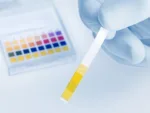
The Most Telling Signs and Symptoms of Methamphetamine Use
Methamphetamine (or “meth”) abuse can occur in individuals as young as adolescents.
This is because methamphetamines can be prescribed to individuals of all ages struggling with certain health conditions. While many people are able to manage to temporarily use their methamphetamine prescription to aid in their recovery, others develop a dependence on the substance. Some of the signs may seem obvious, but others are not so much.
Learning about the various methamphetamine use symptoms can help you identify a potentially life-threatening issue in yourself or someone you love. You’re in the right place.
In this article, we’re going to take a closer look at methamphetamines and break down what the most common signs and symptoms of regular methamphetamine use are.
What are methamphetamines?
Methamphetamines are a stimulant drug that affects the central nervous system. Although its medical uses are greatly limited due to its high potential for abuse, there are some instances in which it can be prescribed by a doctor.
These instances are not often, but they do exist. A minor methamphetamine dosage may be prescribed to individuals who have been diagnosed with ADHD in order to help them increase their focus. It also can be prescribed to individuals struggling with narcolepsy (“sleep attacks”) by keeping them more awake and alert.
In many cases, methamphetamine — more commonly referred to as meth — is coming from a licit foreign or domestic lab, but research shows there are close to as many illegal labs producing meth as well.
Its potency is always heavy and the risk of addiction is always present, not to mention the often-severe toll that methamphetamine abuse can take on your physical and mental health.
How does methamphetamine affect the body?
Stimulant drugs make the user feel more alert and attentive, with increased energy levels and often heightened desires as well (such as higher libido or cravings for the drug).
Methamphetamines have a very high potential for abuse that can easily lead to addiction due to the “rush” that many users experience following their consumption. Like cocaine, methamphetamines cause a flood of dopamine in the brain, leading a person to crave (and therefore, typically, use) more.
The more a person uses, the greater their tolerance becomes and the more they have to consume in order to get even close to the level of euphoria they felt at the start of their use.
Methamphetamine use symptoms
While no amount of methamphetamine use is considered safe, extended use can lead to a wide range of physical, mental and behavioral issues.
The severity of the symptoms that manifest will be different per individual, depending on factors like how long they’ve been using, how often, and the quality of the other areas of their health.
The most common signs of methamphetamine use include:
- Paranoia and hallucinations
- More energy and physical activity
- Dental problems (tooth decay, gum disease, teeth grinding)
- Irritability, agitation and aggression
- Difficulty with memory and decisions
- Cognitive impairment and other challenges
- Significant weight loss and lack of eating
- Sleep disorders (like sleeping too little or too much)
If you or someone you care about is regularly engaging in methamphetamine consumption, know that no amount of this substance is safe and addictions to it develop quickly. When left untreated, methamphetamines can be extremely damaging to your physical and mental health.
It’s okay if you’re feeling overwhelmed and aren’t quite sure what to do next; send us a message and we’ll guide you as best we can.
Begin healing today
Here at Bluff Augusta, we offer a variety of comprehensive addiction treatment services to men and women of all ages, and in all stages of mental health, substance abuse or trauma recovery.
Enrolling in one of our programs means you’ll work closely with a medical professional in order to create a personalized, evidence-based treatment plan. By receiving a plan that’s been specifically customized to fulfill your unique needs, you’ll experience a safer, more comfortable recovery experience.
Please call us today at [phone_linked] to speak with one of our intake specialists and learn more about which of our treatment services is the best fit for you.








